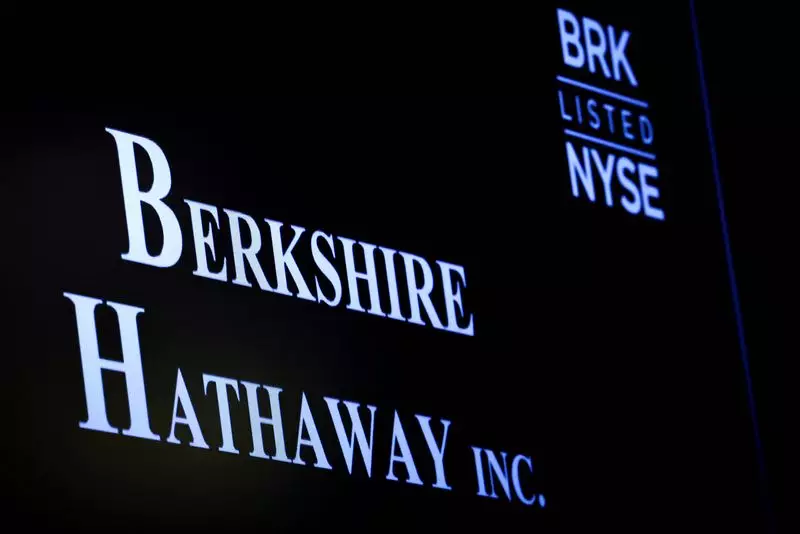Berkshire Hathaway, under the legendary guidance of Warren Buffett, continues to exhibit a cautious approach in the volatile investment landscape, particularly in its dealings with stock holdings. This past quarter reflects a strategic shift that reveals much about Buffett’s long-term vision in uncertain economic conditions.
In the third quarter, Berkshire Hathaway significantly trimmed its stock holdings, most notably reducing its stake in Apple by 25%, equating to approximately 100 million shares. This decision still left the company with about 300 million shares, but hints at a broader strategy to consolidate assets amid market fluctuations. As of 2024, the firm has sold over 600 million Apple shares, which raises questions about the existing confidence in one of its key investments. While Buffett has previously indicated that Apple would remain a cornerstone of the portfolio, the recent reductions suggest a strategic recalibration, particularly given the looming concerns over capital gains taxes which could steeply affect investment returns.
Berkshire’s transit from stock purchases includes not only Apple but also other notable positions such as Bank of America. The company divested around $36.1 billion in stocks during the quarter, highlighting a definitive strategy where even coveted stocks are deemed expendable under current valuations. The company’s purchasing patterns have shown a stark trend, with Buffett making only modest purchases — a mere $1.5 billion of stock, marking the eighth consecutive quarter of being a net seller. This stance raises important questions about the future trajectory of Berkshire’s investment philosophy, particularly about whether the company is hesitant to embrace traditional stock investments or if it is waiting for more favorable market conditions.
Another critical aspect to note is Berkshire’s cash reserves, which have sky-rocketed to $325.2 billion, establishing a record high. This substantial accumulation of cash indicates a strategic pivot towards liquidity, possibly in anticipation of greater investment opportunities as market conditions evolve. Historically, Buffett has emphasized the importance of holding a robust cash position to enable rapid action when undervalued opportunities arise. While this overwhelming liquidity offers flexibility, the lack of stock repurchases signals that Buffett’s perception of value may not align with market prices, leading to speculation about future investment strategies.
Examining operational metrics reveals a 6% decline in quarterly operating profit, dropping to $10.09 billion. This decrease stems mainly from the burgeoning insurance underwriting liabilities, particularly related to natural disasters such as Hurricane Helene. Increased claims and losses, including a bankruptcy settlement from a former supplier, underscore the operational risks the insurance segment faces in a changing climate. Despite these challenges, sectors like Geico showed resilience, nearly doubling their underwriting profit. However, this positive trend wasn’t enough to balance the overall decline.
Berkshire’s performance is also characterized by fluctuating net income figures, which reported at $26.25 billion this quarter. This figure marks a significant improvement from a year earlier when the company faced a notable loss related to decreased investment value from market downturns. However, it becomes essential to approach net income with caution, given that accounting regulations prompt the inclusion of unrealized gains and losses, which can distort the perception of operational efficacy.
As Buffett approaches his mid-nineties, speculation about his eventual succession has intensified. Vice Chairman Greg Abel is poised as the likely successor, and both Buffett’s strategic choices and the company’s performance will shape the transition of leadership. The conglomerate, comprising diverse sectors from energy to retail, stands at a pivotal juncture, propelled by a wealth of cash and an urgent need to adapt to market dynamics.
Scrutinizing Berkshire Hathaway’s recent activities reveals an intricate tapestry of cautiousness and strategic foresight. The decision to reduce stock exposure while accumulating cash suggests a blend of prudence and anticipation for future opportunities. As the investment landscape continues to evolve, the sustained focus on operational efficiency and long-term growth will be crucial for Berkshire’s enduring success.

